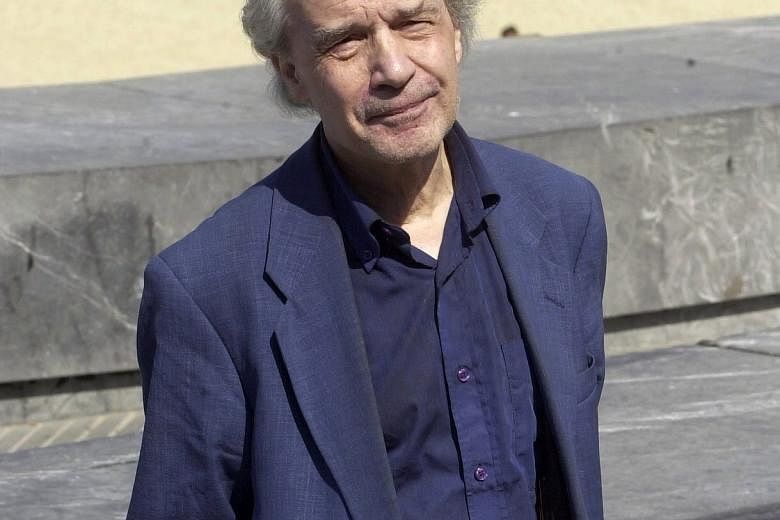NEW YORK • Jacques Rivette, a French director whose challenging and often enigmatic work was revered by film aficionados, died last Friday at his home in Paris. He was 87.
French culture minister Fleur Pellerin confirmed the death on Twitter, calling Rivette a film-maker "of intimacy and loving impatience". Rivette had Alzheimer's disease, said his long-time producer Martine Marignac.
Rivette never achieved the celebrity status of Francois Truffaut and Jean-Luc Godard, his fellow members of the group of French critics turned film-makers that became known as the New Wave. But he always had his colleagues' respect - Truffaut once admiringly called him "the most fanatic of all of our band of fanatics" - and he did enjoy some commercial success.
His most successful film was probably one of his later ones, La Belle Noiseuse (1991), a loose adaptation of Balzac's Le Chef-d'oeuvre Inconnu, about the intense complicity that grows between a painter (Michel Piccoli) and a young woman (Emmanuelle Beart) who agrees to pose nude for him.
The film's demanding running time, nearly four hours, was typical for Rivette, who enjoyed exploring and exploding the limits of conventional movie storytelling, although its relatively transparent theme, the give-and-take between life and art, was not.
More representative was Celine And Julie Go Boating (1974), a critically praised excursion, more than three hours long, in the company of two contemporary Parisians, a magician (Juliet Berto) and a librarian (Dominique Labourier). The two are drawn to a mysterious house where, their imaginations aided by magic candy, they witness an unfolding Edwardian melodrama involving a lonely widower (Barbet Schroeder) and a pair of conniving women (Bulle Ogier and Marie- France Pisier). Art and life are on the docket here as well, but the relationship between the two is shifting and complex. And it is by no means clear, at any given moment, whether the visitors are imagining the residents of the house or vice versa.
"It's not just that the film holds up to repeat viewings," critic Dennis Lim wrote in The New York Times in 2012 when a new print of Celine And Julie was shown at Film Forum in Manhattan. "Its very point is its seemingly infinite repeatability, its mysterious capacity to surprise both first-time viewers and those who know it as well as a magician reciting an incantation."
Rivette was born on March 1, 1928, in Rouen, where his father was a pharmacist. He became fascinated by movies as a child and, as a teenager, he founded a local film society. He made his first film, a short called Aux Quatre Coins, in 1949, the same year he left for Paris to study at the Sorbonne.
His course work soon took a back seat to screenings at the Cinematheque Francaise, where he met another young enthusiast and future film-maker, Eric Rohmer. The two founded a magazine, La Gazette du Cinema, which collapsed after five issues, and joined the staff of Cahiers du Cinema, where they fell in with a like-minded group of passionate cinephiles including Truffaut.
Marignac said: "All of Jacques' life was cinema and what I hope for is that his films are seen, seen again and discovered by a new generation who maybe doesn't know them.
"I've lost a master, a friend and a chapter of my life professionally and personally."
She said Rivette met his wife, Veronique, about a decade ago. They married recently, after he had received the Alzheimer's diagnosis.
"Thanks to her, he avoided hospitals and was able to stay home," she added.
NEW YORK TIMES

